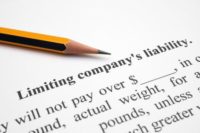Computers, and the Internet in general, play a more important role in our lives with each passing day. This is especially true in the world of business, where many organizations are shifting towards cloud-based or other digital storage options in lieu of traditional print information. To protect businesses and consumers from misuse or theft of these resources, the Virginia Computer Crimes Act was created. Also commonly referred to as the VCCA, the Act enacts property rights in computer information, privacy and property while barring the use of computers or devices for email spamming or harassment. Criminally, depending upon the type, damages caused, and whether it is a first violation, the offenses range from serious misdemeanors up to serious felonies. Outside of the criminal sphere, both employers and employees need to be aware the VCCA also creates the right to sue for civil damages resulting from violations of the act.
What does the Virginia Computer Crimes Act Prohibit?
The VCCA prohibits computer-related activities in six main areas: fraud, trespass, invasion of privacy (e.g. hacking), sending spam, harassment, and aiding in other crimes. Fraud, trespass, invasion of privacy, and sending spam may rise to the level of a felony.
Computer fraud describes a person, or persons, who use a computer or network (e.g. internet or home network) without the authority of the owners and with an intention to obtain information under false pretenses, embezzle, steal trade secrets or aid in committing any other crime. If the damages are more than $200 it is a felony.
Trespass describes maliciously acting to alter someone’s computer or network. It encompasses a number of situations including causing deletions, malfunctions, or installation of malicious software or keystroke recorders or other data collection software. Any trespass damaging $1000 or more is a felony.
Invasion of privacy is distinct from trespass and refers to intentionally using a computer to examine another person’s employment, salary, credit, or other financial or identifying information when the examiner knows or should know that they lack permission or authority to do so. Second convictions or convictions for selling the information are felonies.
Unfortunately, most people are familiar with receiving spam messages. Sending spam under the VCCA, does not include any commercial e-mail sent to people with whom you already have a business or personal relationship, regardless of the number being sent. Interestingly, the VCCA does specifically penalize falsifying or forging electronic computer transmission information or routing information used to track who sent or received emails. It also penalizes selling, giving, distributing or intending to do so any software which would help falsify that information.
In Virginia, it is important that not only businesses, but parents are aware the harassment via computers or the internet is illegal. Harassment via a computer, or “cyber-bullying” is specifically prohibited by the VCCA. and though not a felony it is the most serious type of misdemeanor, punishable by fines and up to 12 months in jail. It includes communicating through a computer or network any obscene, vulgar, or otherwise profane language, proposing or threatening obscene or illegal acts for the purpose of intimidating, coercing or bullying someone.
The Virginia Computer Crimes Act and Civil Litigation
One of the most interesting things about the VCCA is that it makes it possible to seek a civil suit instead of depending upon a criminal investigation when a computer-related crime or illicit activity occurs. For example, consider a scenario involving an invasion of privacy and theft of digital property. Say an employee has their own business they’re running as a secondary source of income to their primary employment. They are short on business contacts, but know their employer’s computer network stores thousands of e-mail addresses of the company’s regular clients.
If our employee examines the company’s private email list for the purpose of gaining them for their own secondary business, then she will have violated the VCCA by invading her company’s privacy rights.
If she takes any of the e-mail addresses in order to send out unsolicited advertisements for her own company, then she’s again violated the VCCA by stealing her company’s digital property.
If she uses her company’s property for its own benefit then no violations occur, but as soon as she acts without permission for her other company, then she is both criminally and civilly liable for multiple violations of the Virginia Computer Crimes Act.
This example is important to show that misuse of digital property can result in severe consequences. Even though copying digital property doesn’t necessarily prevent the original owner from continuing to benefit from its use it is still a violation of the Virginia Computer Crimes Act and could lead to significant financial penalties or jail time.
Ryan C. Young | Civil Litigation Attorney | Richmond, Virginia




